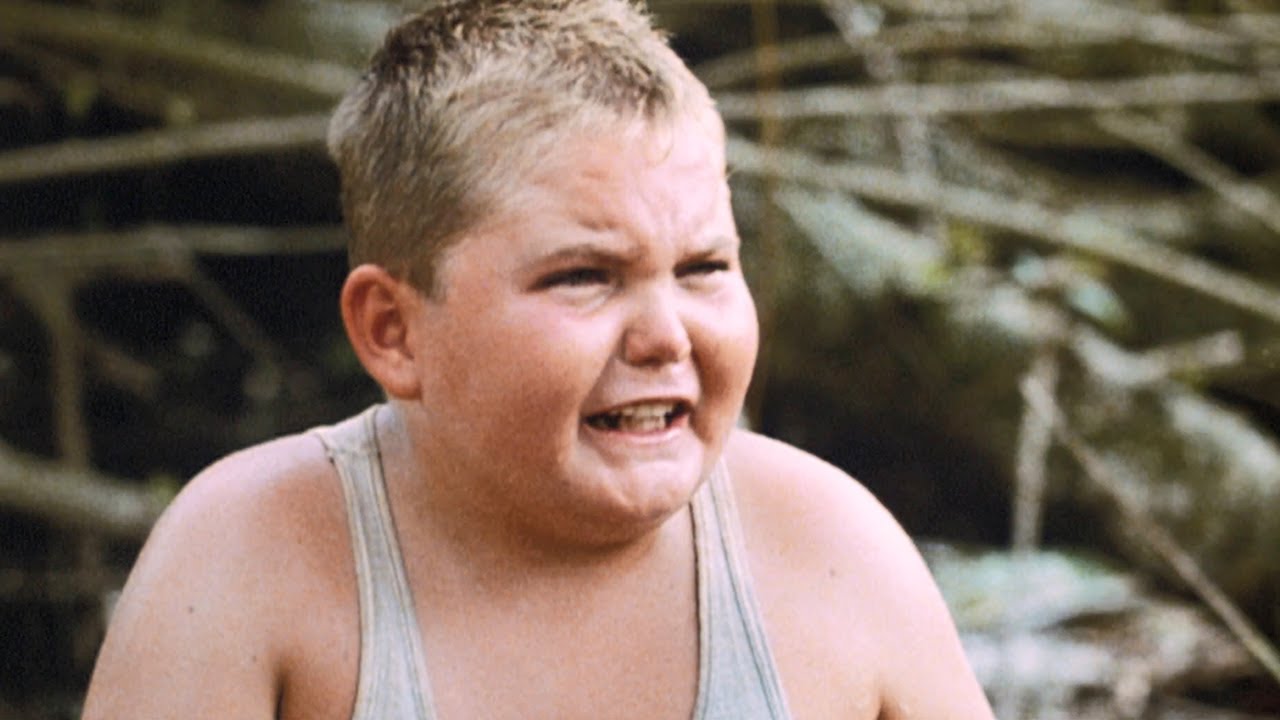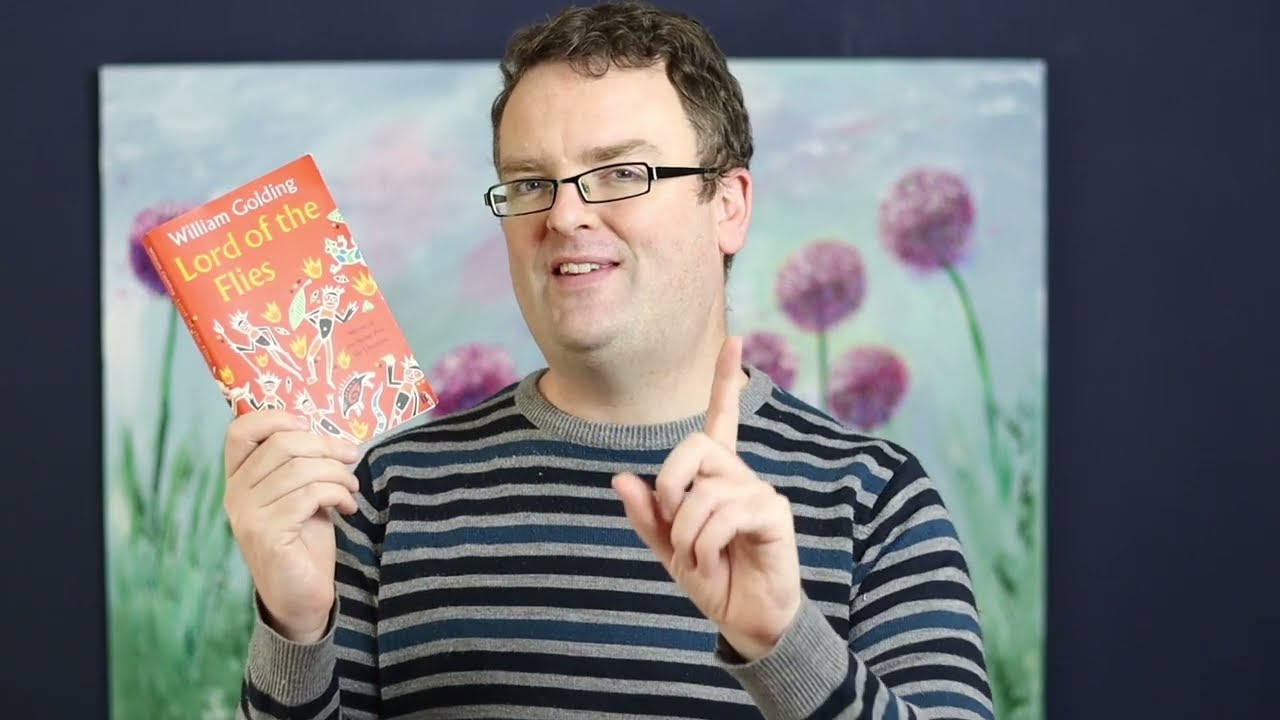William Golding’s classic novel, Lord of the Flies, offers an unfiltered look at human nature through the harrowing experience of a group of boys stranded on an uninhabited island. While it’s easy to see it merely as a chilling tale, it reveals profound truths about humanity. As we dive into this topic, we’ll explore seven essential truths that reflect the complexities of human behavior and might just give us pause in our modern reality.
1. The Basic Instincts Revealed: 7 Key Truths from Lord of the Flies
The essence of Golding’s narrative hinges on how fragile our civilization truly is. Buckle up, dear reader, as we explore these crucial insights together!

1.1. The Fragility of Civilization
Golding paints civilization’s “sturdy” veneer as merely a fragile facade. When Ralph and Piggy aspire to establish some order through democratic means, they quickly realize that societal norms are super slight. Reflecting on contemporary society, we saw this fragility laid bare during the COVID-19 pandemic. Fear and uncertainty swept through communities, breaking down civil discourse and revealing deep-seated tensions among different groups. Just like on that island, it takes only a spark to ignite chaos.
1.2. The Power of Fear
Fear, as portrayed in Lord of the Flies, acts as a mighty force. Remember how Jack used the specter of the “beast” to create dread among the boys? It’s a powerful commentary on how fear can be manipulated. Fast forward to today, and we see similar tactics in politics, where leaders exploit fear to maintain control. Populism has thrived on this premise, reminding us that it’s not just boys on an island who can be led astray by fear; entire nations can, too.
1.3. The Struggle for Power
Let’s face it, the tussle for power is as old as time. Jack’s rise to supremacy exemplifies how charisma can lead a group into the depths of chaos. This resonates eerily in corporate landscapes, too. Think of Uber under Travis Kalanick’s controversial leadership decisions, which were soaked in power struggles that often stifled the company’s integrity. Whether it’s the corporate boardroom or a deserted island, the competition for control can lead to dark places.
1.4. The Duality of Human Nature
Golding’s nuanced depiction of human nature showcases the eternal tug-of-war between order and chaos. Ralph symbolizes civilization’s rational side, while Jack represents primal instincts. This duality is no stranger to debates in psychology either. What about the prison system? Rehabilitation versus punishment mirrors this same conflict—it’s humanity grappling with its own inner demons on various stages.
1.5. The Loss of Innocence
The transformation from innocent boys to savage hunters is a disturbing reminder of how swiftly childhood innocence can vanish. Tragic contemporary events like school shootings and youth gang violence demonstrate just how fragile innocence is today. These stark realities underline significant concerns surrounding how we nurture our youth—a reflection of our society’s challenges.
1.6. The Role of Leadership
In Lord of the Flies, leadership styles play pivotal roles in shaping group dynamics. Ralph’s democratic ideals clash with Jack’s authoritarian rule, revealing how different approaches can yield diverse outcomes. In today’s business world, contrasting leadership styles emerge aplenty. Consider Satya Nadella’s transformative regime at Microsoft against Elon Musk’s often controversial methods at Tesla. Each leader influences their organization uniquely, impacting culture in profound ways.
1.7. The Influence of Isolation
The impact of isolation on the boys escalates their primal instincts, highlighting a key psychological insight. Recent studies during the pandemic have illuminated how social isolation can exacerbate feelings of anxiety and stress. This revelation strikes a chord in light of Lord of the Flies, where the deserted island becomes a crucible for the boys’ darker sides. It’s a sobering truth that our connections with others matter immensely for our well-being.

2. The Broader Implications of Golding’s Insights
Golding’s timeless truths from Lord of the Flies extend far beyond literary analysis. They act as mirrors reflecting the human condition across various facets of contemporary society, from politics to interpersonal relationships. The themes of power, fear, duality, and societal breakdown are more than just fiction—they reverberate through our daily lives and choices.
As we navigate our increasingly complex world, these truths become essential guideposts. From choosing ethical leaders in business to understanding the importance of community, Golding’s insights implore us to confront our own nature. It’s not just a fictional island; it’s a representation of where we find ourselves today, pushing us to recognize the duality within us.
Final Thoughts: Reflecting on Humanity’s Tapestry
As we conclude our journey through Lord of the Flies, it’s clear why Golding’s work endures. It captures the rich tapestry of human nature—the light and the dark we all possess. In a time when society grapples with its primal urges, these insights encourage us to foster empathy, promote dialogue, and strive for civility amid chaos. The world may seem tumultuous, but understanding these competing instincts can prepare us for a more harmonious future.
So, whether you revisit Lord of the Flies in your next reading or find yourself navigating the complexities of our modern landscape, remember—it’s all part of this delicate dance we call humanity.
Lord of the Flies: Surprising Truths About Human Nature
The Origins of Chaos
Did you know the chilling concept of “Lord of the Flies” was inspired by real-life events? When examining humanity’s descent into savagery, it’s worth noting that author William Golding based his novel on experiences from World War II. Just as some people use a home loan to build their dreams, Golding explored the fragility of civilization and human nature, suggesting it can easily unravel with the right push. Interestingly, in the novel, the boys’ descent mirrors how characters are often Villainized in stories, losing their innocence as their primal instincts surface.
The Nature of Leadership
Leadership takes on a different hue in “Lord of the Flies,” as Ralph and Jack represent competing ideals. Ralph leans towards order and reason, much like how the cast does in “Tangled,” while Jack embodies chaos and primal urges, forcing readers to grapple with which traits truly resonate within us. This struggle showcases how civilization’s veneer can crack under pressure, revealing darker instincts—something we all must contend with in varying degrees. One glance at the stark contrasts in human behavior makes you wonder about the societal constraints that keep us from going full Yogi Bear in the wild.
Symbolism and Unexpected Turns
The symbols in “Lord of the Flies” are as potent as any storyline in Hollywood. Take the conch shell, which initially signifies authority and order, much like a Chanel Bag represents status in society. But as the boys’ societal structure crumbles, the shell’s significance diminishes, illustrating how easily norms can be shattered. It’s a volatile reminder that the thin line between civility and chaos can vanish faster than the buzz around a new Charles Bronson film.
Golding’s exploration doesn’t just stop at the kids; it invites us to reflect on modern relationships and circumstances, including unexpected alliances. Just like the plot twists abundant in The Five Year Engagement, the boys’ interactions reveal complex connections that reflect humanity’s untamed nature. And we can’t forget about how pivotal history is in shaping human behavior—almost as if we’re all destined to reenact our past mistakes. So next time you come across an unexpected news story or celebrity spat, remember: within each chaotic moment lies a piece of “Lord of the Flies.



![''Lord of the Flies' by William Golding│Book Review [spoilers]](https://www.bestmovienews.com/wp-content/cache/flying-press/1c801d27ba325bcc2de2d4522148acca.jpg)



